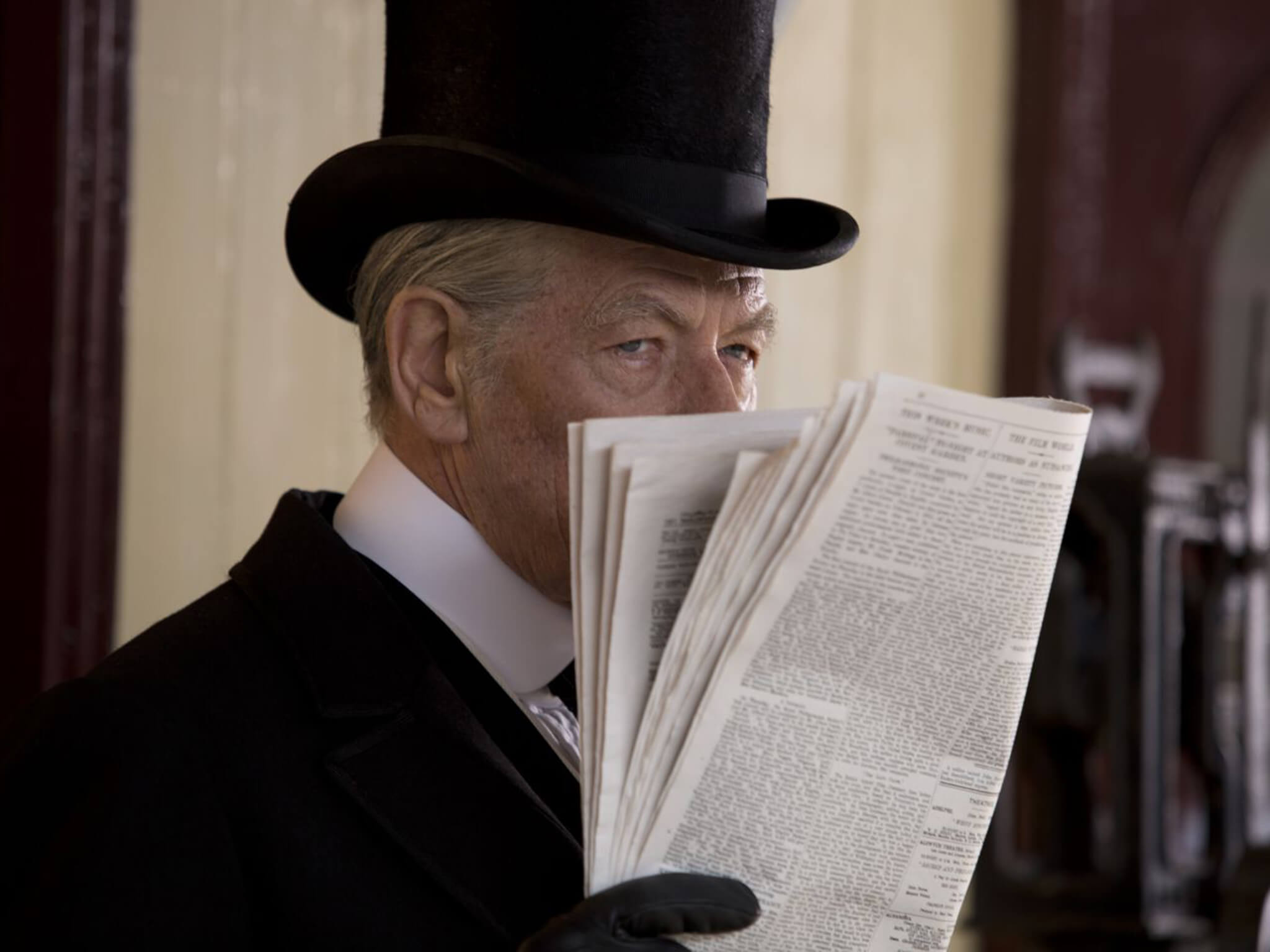Mr. Holmes [2015] answers a question I’m certain no one, with the exception of the author of the book that inspired this film, ever thought of asking: what happens to Sherlock Holmes after he stops being Sherlock Holmes?
Well… he gets old. Like, really old. When the film opens, it’s 1947 and Sherlock (Sir Ian McKellen) has been out of the biz for 35 years. He’s 93 and struggling to retain his independence as his physical and mental capacities begin to fade. He’s having trouble remembering things, which stirs up the long-buried desire to figure out what went wrong on his very last case, the one that led to his retirement and his retreat from the world at large. McKellen, 75, is fascinating to watch as he portrays both the 93-year-old Holmes and the 58-year-old memory of his former self. The performance is at once acrobatic and entirely convincing.
He gets to set the record straight. The conventions we associate with the character are conspicuously absent. Holmes is portrayed as a real person, fighting against the fictional image of himself as a character depicted in books. He absolutely refuses to smoke a pipe, and considers the universally known deerstalker hat “an embarrassment of the illustrator.” Still, at his core, he is truly the same Sherlock Holmes everyone knows, preoccupied with logic and deduction above all else.
He gets to explore inner mysteries. Despite having the world’s most famous detective as its subject, the film’s focus is on relationships and characters, and the mystery – although haunting at times – is somewhat secondary. In the foreground are Holmes’ reserved housekeeper Mrs. Munro (Laura Linney) and her son Roger. Friendship blooms between Roger and the elderly Holmes, but Mrs. Munro remains distant and wary of the old man. Meanwhile, Holmes’ investigation into his own past turns inward, as he struggles to recall not just the facts of the old case, but the emotional stakes involved. While fact and intellect have ruled him his entire life, his discoveries now lead him to doubt these priorities, and himself.
And he gets some bees. Anyone expecting a compelling mystery is bound to be perplexed by the long stretches of beehive maintenance in the film. Although the bees serve as a catalyst for Holmes’ budding friendship with his housekeeper’s son, they aren’t the most fascinating of subjects for moviegoers hoping for intrigue. However, director Bill Condon’s use of the bees imbues the film with a sleepy kind of poetry, and the loneliness and isolation that surface as a recurring theme is an interesting contrast with the social nature of the insects.
Not your standard mystery, but something more.

